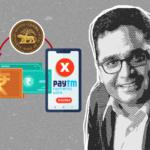- OpenAI rolls out a memory feature for ChatGPT to store user details and conversations.
- But it raises privacy issues around data collection that OpenAI will need to address transparently.
- Chatbots aim to understand users better.
OpenAI’s rollout of memory for enhanced user experience
Chatbot ChatGPT is receiving an upgrade – the ability to remember users and conversations over time. Parent company OpenAI is rolling out “memory” for ChatGPT to store details about users in order to provide a more personalized experience.
With memory enabled, ChatGPT can recall preferences you directly tell it, like how you take your coffee. It can also passively pick up details about you through continued chat interactions.
The goal is for ChatGPT to feel smarter and avoid repetitive conversations. OpenAI gave the example of the Books chatbot automatically logging books you’ve already read based on past discussions.
.jpg)
What does this mean?
While promising for customization, ChatGPT’s memory capability raises privacy concerns. OpenAI claims users remain in control – you can view what ChatGPT knows about you, delete info, or disable memory altogether.
For now, the feature is in limited testing. But personalized memory could soon become integral to ChatGPT, for better or worse. Users may appreciate the improved experience while worrying about data collection.
As AI chatbots grow smarter, they aim to understand us better too. With memory, ChatGPT takes a big step toward knowing its users. OpenAI will need to transparently address apprehensions even as memory looks set to power the next evolution of conversational AI.









